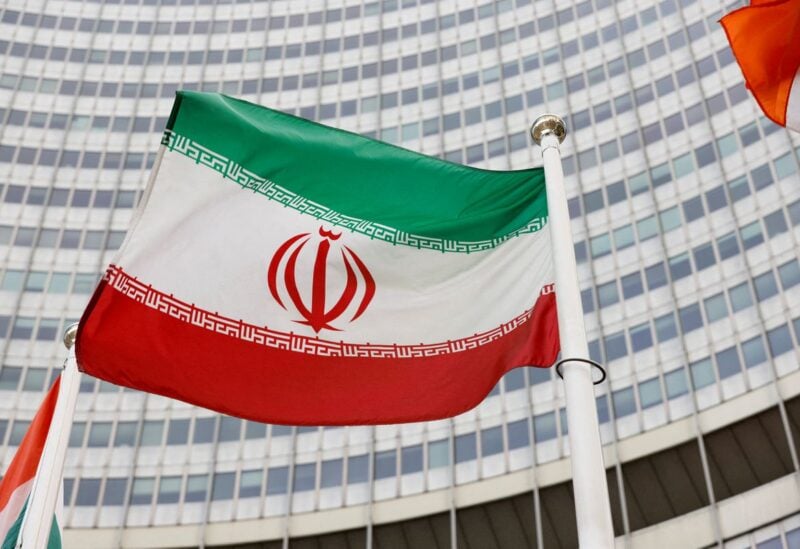
The Iranian flag waves in front of the International Atomic Energy Agency (IAEA) headquarters, amid the coronavirus disease (COVID-19) pandemic, in Vienna, Austria May 23, 2021. REUTERS/Leonhard Foeger/File Photo
A closed session with US lawmakers was held on wednsday, by US Special Envoy for Iran, Robert Malley, and Deputy Assistant to the President and Coordinator for the Middle East and North Africa Brett McGurk, to brief them on the latest developments on Iran.
Several Senate Foreign Relations Committee members criticized President Joe Biden administration’s insistence to return Iran to the nuclear deal.
The Committee Chair, Bob Menendez, has already said publicly that Iran “now has enough uranium to produce a nuclear weapon” and has urged the White House to admit that a return to the original agreement is no longer the best path.
Meanwhile, Head of the Atomic Energy Organization of Iran Mohammad Eslami said on Tuesday that Iran’s relations with the International Atomic Energy Agency (IAEA) are ongoing, noting that Iran will act based on the safeguards protocol.
His remarks were made in response to the 35-nation Board of Governors’ majority vote to criticize Iran for a lack of cooperation with the UN nuclear agency.
The board has expressed “profound concern” the traces remain unexplained due to insufficient cooperation by Iran and called on Tehran to engage with the watchdog “without delay.”
Eslami slammed IAEA’s selective approach to the 2015 Iran nuclear deal.
He stressed that all relevant parties should be committed to all the deal’s articles.
“It is not possible for them to bring out some part of the JCPOA and say that these matters are not relevant,” Iran’s official news agency IRNA quoted him as saying.
He affirmed that Tehran is willing to cooperate with the IAEA if it honors its commitments towards Iran.
“The IAEA has to continue its work with Iran within the framework of safeguards.”
In this context, the United States said on Tuesday it awaits a constructive response from Iran on reviving the 2015 nuclear deal without “extraneous” issues, a possible reference to Iran’s demand its Revolutionary Guards be dropped from a US terrorism list.
“We await a constructive response from the Iranians, a response that leaves behind issues that are extraneous to the JCPOA,” State Department spokesperson Ned Price said, referring to the deal formally called the Joint Comprehensive Plan of Action.
In 2018 then-US President Donald Trump reneged on the deal, under which Iran restrained its nuclear program in return for relief from economic sanctions, prompting Iran to begin violating its core nuclear limits about a year later.
Speaking at a briefing, Price was responding to questions about the Iranian foreign minister’s statement that Tehran had put forward a new proposal on reviving the agreement, which he did not address in detail.
Another State Department spokesperson, who asked not to be identified, denied the United States received any serious proposal from Tehran.
Iran has declined direct talks with Washington about reviving the deal and transmits messages chiefly via European diplomats.
“We have seen no substantive communication from Iran, but we are open to any initiative that would allow us to immediately conclude and implement the deal we negotiated in Vienna for mutual return to full implementation of the JCPOA, dropping issues that go beyond the JCPOA,” said the spokesperson.
The pact seemed near revival in March but talks were thrown into disarray partly over whether the US might remove the Iranian Revolutionary Guard Corps (IRGC), which controls elite armed and intelligence forces that Washington accuses of a global terrorist campaign, from its Foreign Terrorist Organization (FTO) list.
Biden’s administration has made clear it has no plan to drop the IRGC from the list, a step that would have limited practical effect but would anger many US lawmakers.